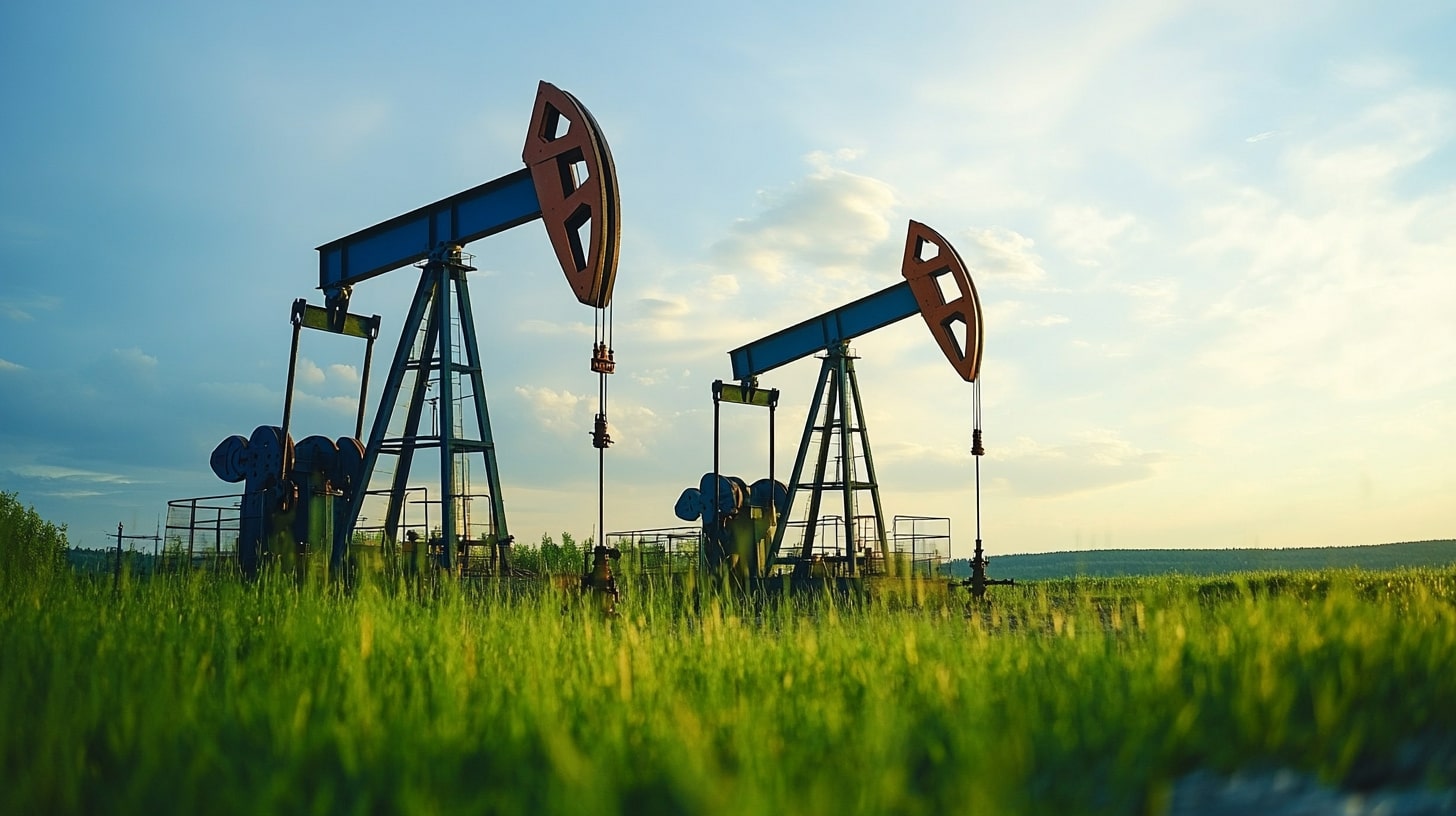
Oil Prices Soar as Suriname’s Oil Boom and Trump’s Return to Sanctions Rewrite Global Energy Rules
Suriname’s massive oil discoveries, Angola’s departure from OPEC, and Trump’s hardline sanctions ignite fresh momentum in the global oil market | That's TradingNEWS
Suriname's Oil Reserves: An Emerging Power in the Caribbean
Suriname, often overshadowed by Guyana, has emerged as a significant player in the global oil market. Recent offshore discoveries have unlocked massive reserves, with an estimated 700 million barrels in Suriname's Gran Morgu field, adjacent to ExxonMobil's 11-billion-barrel find in Guyana. TotalEnergies, Chevron, and QatarEnergy have intensified exploration efforts in the region, projecting production growth through the 2030s. The strategic collaboration in Blocks 6 and 8, with Staatsolie holding a 40% share, represents a substantial investment in Suriname's future as a powerhouse in oil and gas.
The scope of these investments goes beyond immediate extraction, emphasizing sustainability through the use of all-electric Floating Production Storage and Offloading (FPSO) units and methane monitoring systems. These measures aim to align Suriname’s oil industry with global decarbonization goals while simultaneously ramping up production to compete internationally.
Impact of Federal Reserve Policies and Dollar Strength on Crude Oil
Crude oil prices have been highly responsive to the U.S. Federal Reserve's recent interest rate policies, with a quarter-point cut pushing crude futures up by nearly 1%. West Texas Intermediate (WTI) crude closed at $72.36, while Brent crude rose to $75.63 per barrel. The Fed’s decision to ease rates has heightened expectations for an economic upturn, further bolstering energy demand. This development coincides with anticipation of tightened U.S. sanctions on Venezuela and Iran, which could significantly restrict global oil supply and propel prices higher.
Additionally, the strong U.S. dollar—driven by a hawkish economic outlook under the newly elected Trump administration—has exerted complex pressures on oil. Although the dollar’s strength typically dampens crude demand by increasing import costs, expectations for supply disruptions have helped maintain an upward trend. Hurricane Rafael's impact on Gulf Coast production, with over 22% of regional oil output halted, has added another layer of volatility to oil prices.
Decarbonization and Technological Innovations in Offshore Oil Extraction
TotalEnergies has committed over $10.5 million toward developing offshore Block 58 in Suriname, expected to commence full production around 2028. The company has introduced advanced technologies to reduce environmental impact, including a waste heat recovery unit, optimized water cooling, and an initiative to reinject associated gas rather than flare it. These innovations reflect a growing trend among oil majors to incorporate sustainable practices in response to mounting global pressures to lower carbon footprints.
Despite ambitious investments, Suriname’s Finance Minister Stanley Raghoebarsing has made it clear that the country will avoid leveraging future oil revenues through pre-sales or loans. This stance, aimed at preserving long-term financial stability, underlines Suriname’s cautious approach amid its rapid oil-driven economic transformation.
Angola’s Strategic Shift and Resurgence in Oil Production
In a bold departure from its OPEC commitments, Angola announced its intention to exit the organization in January 2024 to boost oil production independently. Angola's output has been constrained in recent years due to underinvestment in offshore fields, but the country now plans to auction additional blocks through 2026. Chevron’s recent exploration agreements in Angola signal renewed interest in West Africa's largely untapped oil potential. This move reflects Angola’s resolve to revitalize its oil industry while re-establishing its position as a dominant energy producer in the region.
Trump Administration’s Potential Impact on Global Energy Policies
The election of Donald Trump has revived discussions around U.S. energy policies, particularly regarding sanctions on oil-producing nations like Iran and Venezuela. Trump’s past administration saw stringent measures against these countries, which could return under his leadership, potentially removing significant volumes of oil from the market. Oil analysts predict this policy shift could bolster prices by creating artificial supply constraints, intensifying reliance on alternative oil sources from politically stable regions.
Trump’s stance on the renewable energy sector further complicates the outlook for traditional oil. While he has expressed disdain for the Inflation Reduction Act (IRA), which heavily subsidizes clean energy, his administration may reduce or repurpose funds initially earmarked for renewable projects. This pivot could indirectly benefit traditional energy sectors, as fewer regulatory hurdles and financial incentives are extended to low-carbon initiatives.
West Africa’s Rising Profile in Global Oil Supply
Beyond Suriname and Guyana, West Africa is emerging as a crucial player in the global oil landscape. The region’s hydrocarbon-rich basins remain underexplored, presenting a high-growth opportunity for major oil corporations. Chevron’s recent moves to establish a footprint in West African offshore fields highlight this untapped potential. With Chevron’s Liz Schwarze, Global Exploration VP, touting West Africa as a “relatively under-explored” region, the area could become a vital source of new oil supplies over the next decade.
Angola’s production ambitions underscore a critical shift as African oil producers seek greater autonomy outside OPEC’s constraints. However, the success of these initiatives will depend heavily on political stability and sustained foreign investment in developing their infrastructure and reserves.
Conclusion: Balancing Growth and Sustainability in a Complex Oil Market
The dynamics of the oil market remain influenced by a blend of geopolitical shifts, technological advancements, and evolving environmental regulations. From Suriname’s high-tech offshore projects to Angola’s efforts to reclaim its production potential, emerging markets are positioned to play a prominent role in meeting global energy demands.
The resurgence of traditional energy policies in the U.S. could shift investment away from renewable initiatives, impacting oil prices in the long term. As Suriname, Guyana, and West African nations develop their reserves, the global oil landscape is poised for transformative change, with increased production, enhanced sustainability efforts, and intensified political maneuvering. Whether these developments ultimately stabilize oil prices or contribute to heightened volatility remains contingent on the actions of major stakeholders in the energy sector.
















